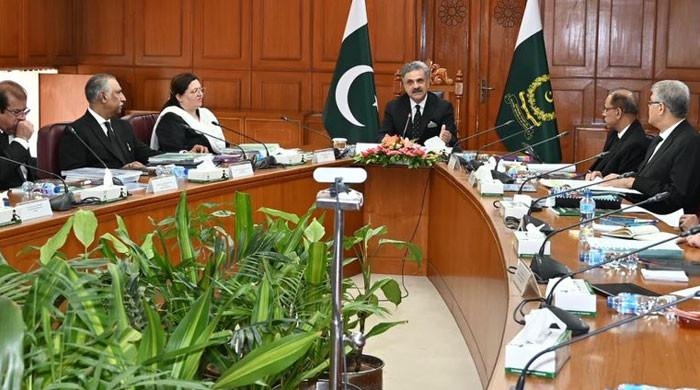NJPMC Establishes Committee to Address Enforced Disappearances
ISLAMABAD: In a significant move, the National Judicial (Policy Making) Committee (NJPMC) has formed a specialized committee focused on creating an organized strategy to deal with enforced disappearances.
This decision occurred during the committee’s 53rd session, presided over by Chief Justice of Pakistan Yahya Afridi at the Supreme Court. According to a statement issued by the apex court, the meeting involved comprehensive discussions.
The committee, which included chief justices from all high courts and the Additional Attorney General for Pakistan, collectively agreed that the judiciary would steadfastly uphold its constitutional obligation to safeguard fundamental rights.
The newly established committee will take into account concerns presented by the executive branch through the Attorney General for Pakistan, ensuring a comprehensive approach to the issue.
During the same session, the NJPMC resolved to shield judicial officers from undue external influence. High courts have been directed to implement defined procedures for reporting and resolving such instances within specific timeframes.
The NJPMC also sanctioned essential structural changes designed to enhance the justice delivery system. These encompass the establishment of a Commercial Litigation Corridor, featuring specialized courts and benches, alongside a Double-Docket Court Regime to be initially tested in selected districts.
Additional initiatives involve introducing court-annexed mediation, endorsing Model Criminal Trial Courts, and planning mediation and family court facilities at the district level.
To promote uniformity within the judiciary, a new committee, led by Justice (retd) Rehmat Hussain Jafferi, has been tasked with suggesting key performance indicators, standardizing training protocols, and addressing inconsistencies in service conditions.
Furthermore, the committee approved the creation of a Professional Excellence Index for the selection of lawyers and has requested that high courts present their frameworks within a 30-day period.
The ethical implications of using generative AI in judicial roles were also examined, with the National Judicial Automation Committee responsible for finalizing a charter on this subject.
The committee supported Standard Operating Procedures (SOPs) for the presence of undertrial prisoners and the submission of police witness statements through video links. It also expressed support for the IGP Punjab’s presentation regarding ongoing reforms and consented to offer training for police officers via judicial academies.
Upon the Additional Attorney General’s request, the NJPMC determined that constitutional petitions pertaining to tax and finance matters would now be reviewed by division benches, rather than single benches, within the high courts.
The committee commended the Lahore High Court’s initiatives, which include the establishment of female bar rooms, day care facilities, and health insurance coverage for judges and their families, and encouraged other high courts to seek similar support from their respective provincial governments.
Additionally, it was decided that the NJPMC Secretariat would address the proposal for prior consultation with presiding officers before relocating ministerial staff in administrative courts and tribunals to the federal government.
The NJPMC has reaffirmed its dedication to maintaining a judicial system that is transparent, effective, and guided by constitutional principles.



Comments (0)
No comments yet. Be the first to comment!
Leave a Comment